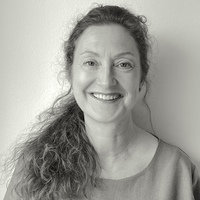Denmark and Sweden have witnessed a historically significant amplification of parental influence in compulsory schools during the past two decades. The emphasis on parental involvement in these two countries reflects international trends... more
Denmark and Sweden have witnessed a historically significant
amplification of parental influence in compulsory schools during
the past two decades. The emphasis on parental involvement in
these two countries reflects international trends of neoliberal governing
of educational processes. We know very little about the
interplay between beginning teachers’ encounters with parents
and how that influences the teachers’ identity formation. This article
investigates beginning teachers’ experiences with parents in
Sweden and Denmark and how these experiences reflect the teachers’
professional identity development. Through a comparative
case study approach, interviews were carried out with 10 teachers
in pre-service and in-service phases of their profession to capture
their interpretations of their experiences with parents. A framework
involving the concepts of parent-teacher relations, professional
teacher identity, and emerging and thickening trajectories was
used to develop the interview questions and analyse data. The
results show that beginning teachers experience challenges in
their relations with parents and these challenges put a strain on
their self-definition as professionals. These results provide implications
for addressing the constraints on teachers’ professional autonomy
brought by a culture of clientelism which has the potential to
change the role of teachers and therefore affect their professional
identity development.
amplification of parental influence in compulsory schools during
the past two decades. The emphasis on parental involvement in
these two countries reflects international trends of neoliberal governing
of educational processes. We know very little about the
interplay between beginning teachers’ encounters with parents
and how that influences the teachers’ identity formation. This article
investigates beginning teachers’ experiences with parents in
Sweden and Denmark and how these experiences reflect the teachers’
professional identity development. Through a comparative
case study approach, interviews were carried out with 10 teachers
in pre-service and in-service phases of their profession to capture
their interpretations of their experiences with parents. A framework
involving the concepts of parent-teacher relations, professional
teacher identity, and emerging and thickening trajectories was
used to develop the interview questions and analyse data. The
results show that beginning teachers experience challenges in
their relations with parents and these challenges put a strain on
their self-definition as professionals. These results provide implications
for addressing the constraints on teachers’ professional autonomy
brought by a culture of clientelism which has the potential to
change the role of teachers and therefore affect their professional
identity development.
Research Interests: Teacher Education, Social Identity, Social identity processes, Comparative & International Education, Teachers' professional development, and 15 moreParental Behavior, Comparative Research, Social Identification, Teacher Identity Formation, Teacher Development, Teacher Identity, Parental Involvement in Education, Teacher professionalism, Teachers, Teacher Professional Identity, Parental involvement, Home-School Links, Neoliberalism and Education, Teacher/parent relationships, and Parent Teacher Collaboration
According to the national framing of the Swedish preschool system, educators are expected to act as mediators of the dominant language while simultaneously promoting multilingualism. Previous research shows that educators display an... more
According to the national framing of the Swedish preschool system, educators are expected to act as mediators of the dominant language while simultaneously promoting multilingualism. Previous research shows that educators display an insecurity as well as a lack of knowledge of how to implement this dual undertaking. This article examines educators' dual undertaking of linguistic diversity (changeability), on the one hand, and a national standard (stability) on the other, based on ethnographic data from three preschools with socioeconomic differences. The data are analysed employing concepts from pedagogic theory and linguistic diversity. Bernstein's competence model with weak classification and framing accommodates translanguaging, giving room for the children's own linguistic initiatives. Translanguaging is understood from a local as well as a global perspective; the local is based on global norms and global norms relate to local practices. The results show that educators support children as linguistic and multilingual beings. Unlike previous studies showing that middle-class children benefit from the competence model, this study shows how children with different socioeconomic backgrounds benefit from the competence model. The diversity of language practice in Swedish pre-schools has the potential to create opportunities for new forms of agency and identity for children.
Research Interests:
At blive en dygtig elev handler ikke kun om faglig præstation. Det er også en social identitet, som skabes kontekstuelt mellem lærere og elever. Disse sociale processer kan være problematiske, og de er vanskelige at få øje på for læreren,... more
At blive en dygtig elev handler ikke kun om faglig præstation. Det er også en social identitet, som skabes kontekstuelt mellem lærere og elever. Disse sociale processer kan være problematiske, og de er vanskelige at få øje på for læreren, der er bundet af undervisningens handletvang. Denne artikel undersøger, hvordan en elevs sociale identitet kan ændre sig fra ”dygtig” til ”lærerens favorit”. Analysen viser, hvordan en dreng gennemgår sådan en identifikationsproces i løbet af folkeskolens mellemtrin, og hvordan processen får utilsigtede negative konsekvenser. Artiklen er et bidrag til debatten om, hvilke sociale processer der kan nedbryde eller understøtte konstruktive klassefællesskaber.
Research Interests:
Detailed, longitudinal ethnographic approaches that explore how school success and failure evolve as interdependent socio-historical positions are important for understanding how such processes affect unintended educational inequity in... more
Detailed, longitudinal ethnographic approaches that explore how school success and failure evolve as interdependent socio-historical positions are important for understanding how such processes affect unintended educational inequity in schooling. This study describes how one student comes to inhabit the identity of a disruptive student relative to a classmate who gradually comes to be viewed as the smarter student.
